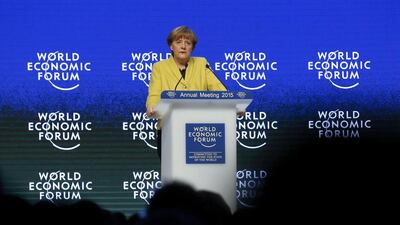The chancellor herself – speaking before details of the European Central Bank’s multibillion euro bond-buying programme were formally announced – played it strictly by the book.
The ECB is an independent body, she insisted, and its decision on QE was for its governing council alone. Nothing to do with Germany.
But the Davos constituency is smart enough, and sceptical enough, to be unconvinced by this.
One explanation for why the euro zone’s crisis has dragged on so long, when other parts of the world have effectively reversed the effects of the 2009 financial crisis, is that Germany has refused to allow QE.
Frau Merkel emphasised there was no change of heart, that “growth orientated sound fiscal policy” and reform were still the order of the day.
But without the nod from Germany, the ECB would not be able to splash as much as €60 billion a month in its bond-buying spree.
So, the Davos elite were grateful QE was coming in, but less than convinced it would be a panacea for the continent.
Some were concerned about the falling value of the euro, others by the fact the ECB appeared to have taken the “easy way out” of its problems. There were fears that, without more structural reforms in the eurozone periphery, it might all be a gigantic waste of cash, as the Germans fear.
One UAE banker summed up the view from the GCC region: “Anything that shows the Europeans are taking action to get their economy going again is a good thing. We just have to hope it’s enough.”
fkane@thenational.ae

